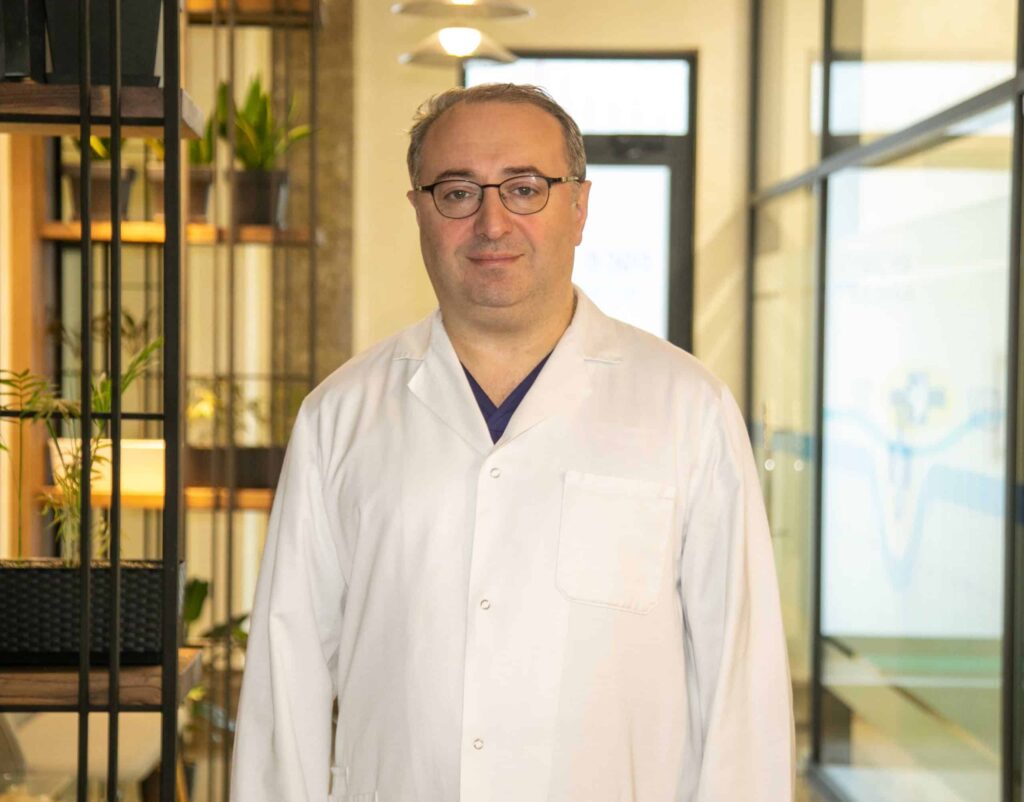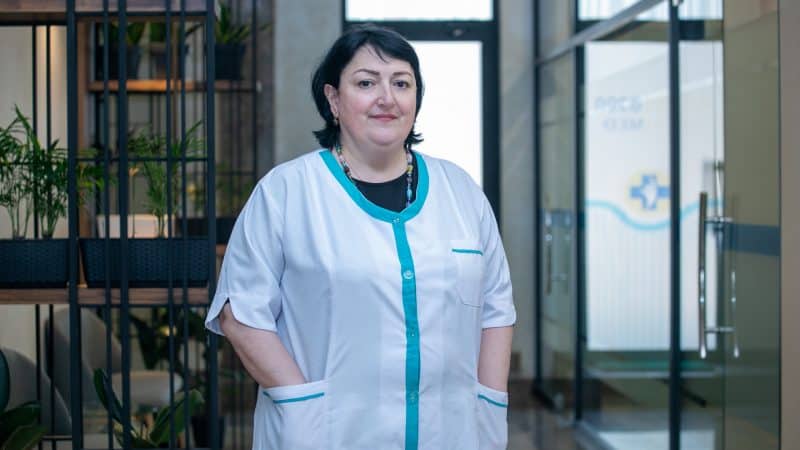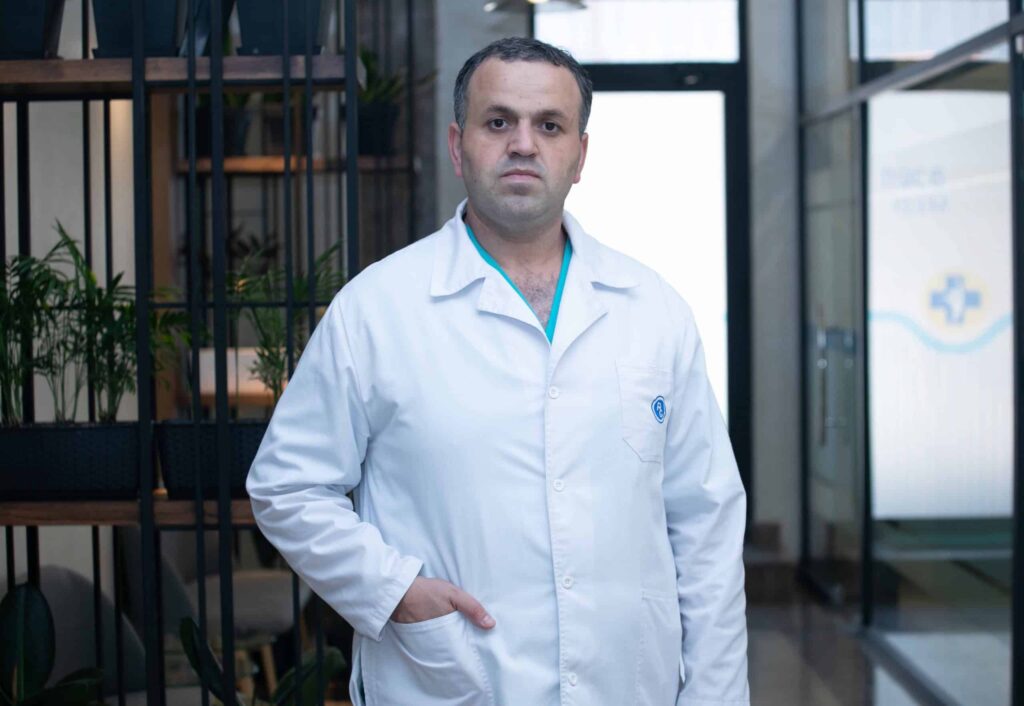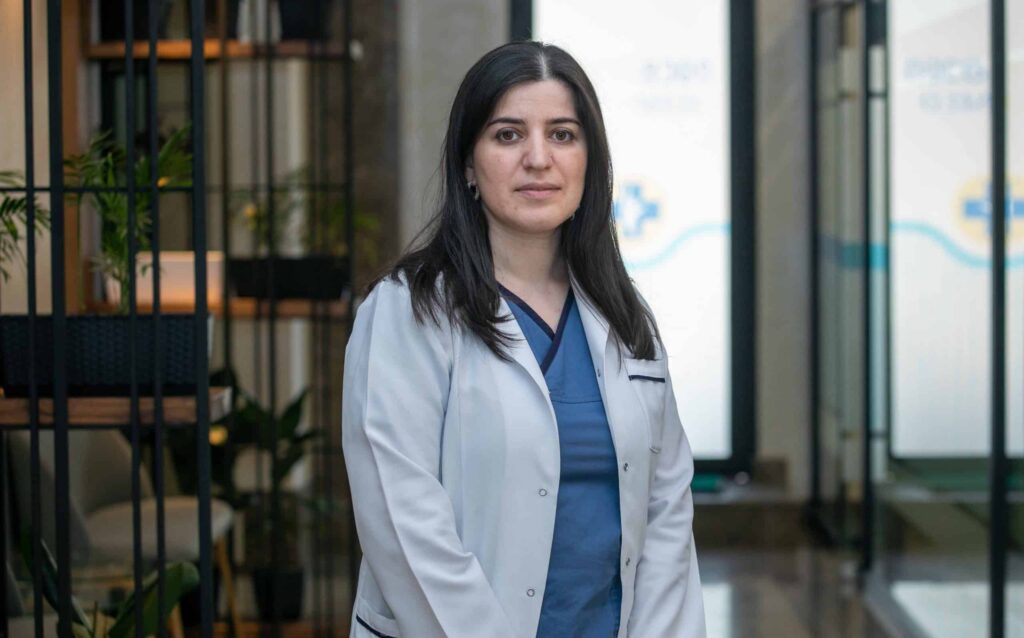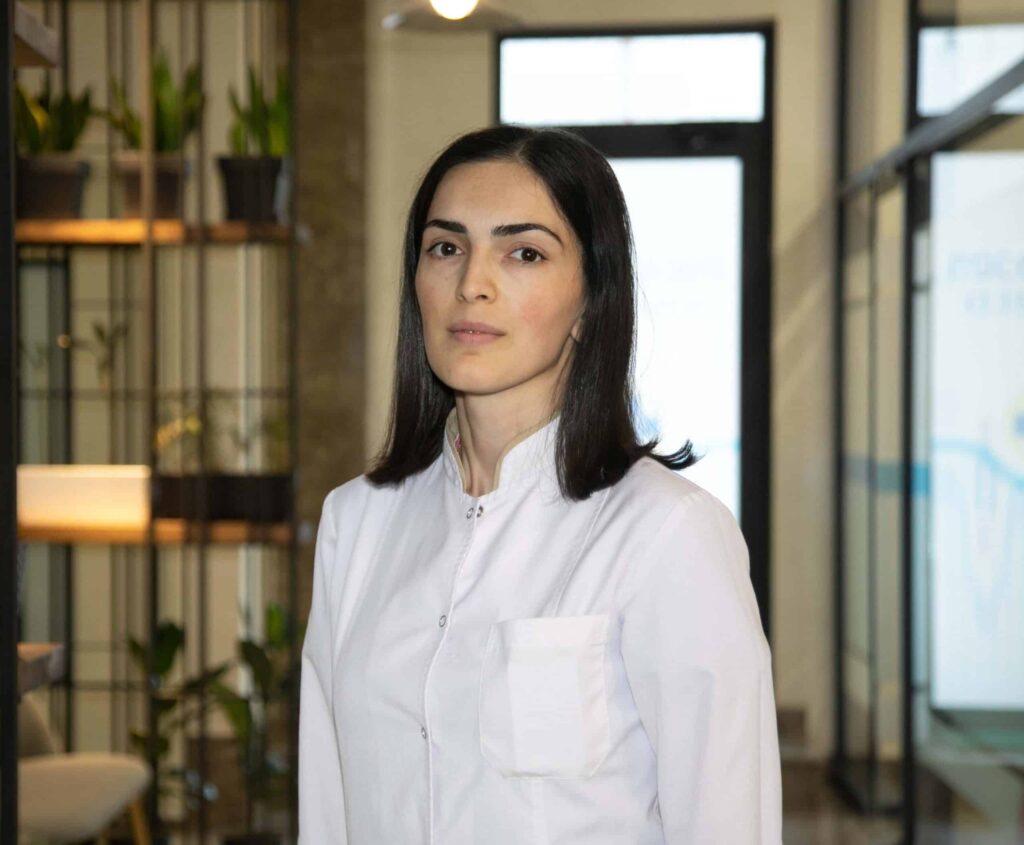Cardiologist consultation – highly qualified and experienced doctors;
Arithmologist consultation– implantation of a temporary pacemaker,Implantation of a permanent pacemaker, implantation of a cardioverter-defibrillator, electrical cardioversion, testing and programming of an implanted pacemaker/defibrillator/resynchronizer.
Electrocardiography – used to assess the condition of the heart muscle, the frequency and regularity of contractions. ECG This is an important diagnostic method for diagnosing various heart rhythm disorders, ischemic heart disease, myocarditis, heart muscle dystrophy, electrolyte imbalance, left ventricular hypertrophy, non-cardiac diseases (eg, pulmonary embolism).
Transesophageal echocardiography (TEE) is a minimally invasive ultrasound examination of the heart. A flexible probe is inserted into the esophagus at the level of the heart.Due to the proximity of the esophagus to the heart, this way we get a more accurate image of the heart than conventional transthoracic echocardiography. TEE is a highly sensitive method for detecting the location of a clot in the left atrium and ear.(for example, before medicament and non-medicament treatment of atrial fibrillation) It is advisable to carry out in a specialized office under light sedation.
Ultrasound examination of the heart in children and adults – with the help of echocardiography, they examine the heart cavities, valves and other structures, assess the contractility of the heart muscle and functional indicators. The study is non-invasive, has no risk factors and side effects.
Fetal heart ultrasound examination – refers to the antenatal (while in the belly) diagnosis of congenital heart disease to determine postpartum tactics and management.
ECG monitoring with 24 and 48-hour Holter method – with the help of monitoring, it is possible to evaluate the work of the heart during 24 hours: During physical and emotional stress, during sleep, in everyday life. It allows to examine patients with potential arrhythmogenic complaints, episodes of syncope (loss of consciousness), organic heart pathologies, bradyarrhythmias, AV-conduction disorders, etc.
24-hour blood pressure monitoring;
Load stress test (cycling ergometry) – is a gradually increasing dosed load, during which the ECG, blood pressure and heart rate are constantly monitored.With the help of the Load test, it is possible to diagnose coronary (feeding the heart) artery disease, hidden ischemia, heart rhythm disorders related to physical exertion, and determine the treatment strategy.
Laboratory examinations – ultra-modern equipment and qualified laboratory assistants;
Non-invasive CT coronary angiography of the heart – with 640-slice computed tomography – Toshiba Aquilion ONE (640-slice). The device is distinguished by high resolution, large coverage area and speed.This is a non-invasive method of studying the blood vessels of the heart, by means of which the coronary arteries are visualized in detail.With the mentioned method, it is possible to detect the atherosclerotic plaque of the blood vessel, evaluate its structure, determine the localization and the quality in case of stenosis.It is also used to detect congenital anomalies and anatomical features of blood vessels and heart. To assess the condition of the aortocoronary shunt and stent.
Invasive Coronarography of the heart – minimally invasive reconstruction of structural pathologies of the heart (closing of the valve of the open foramen ovale). Atrial septal closure, TAVI.





 ქართული
ქართული Русский
Русский
